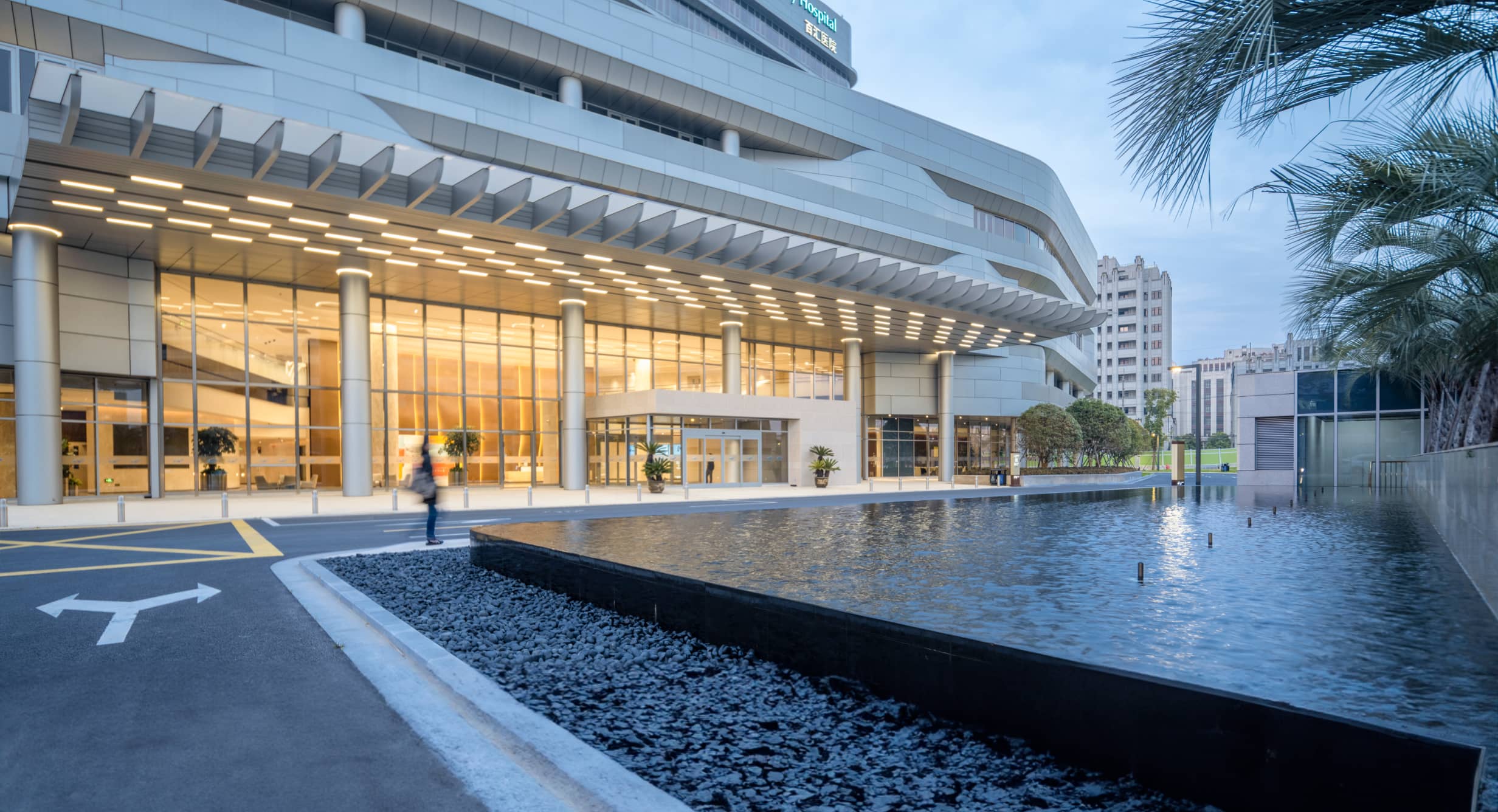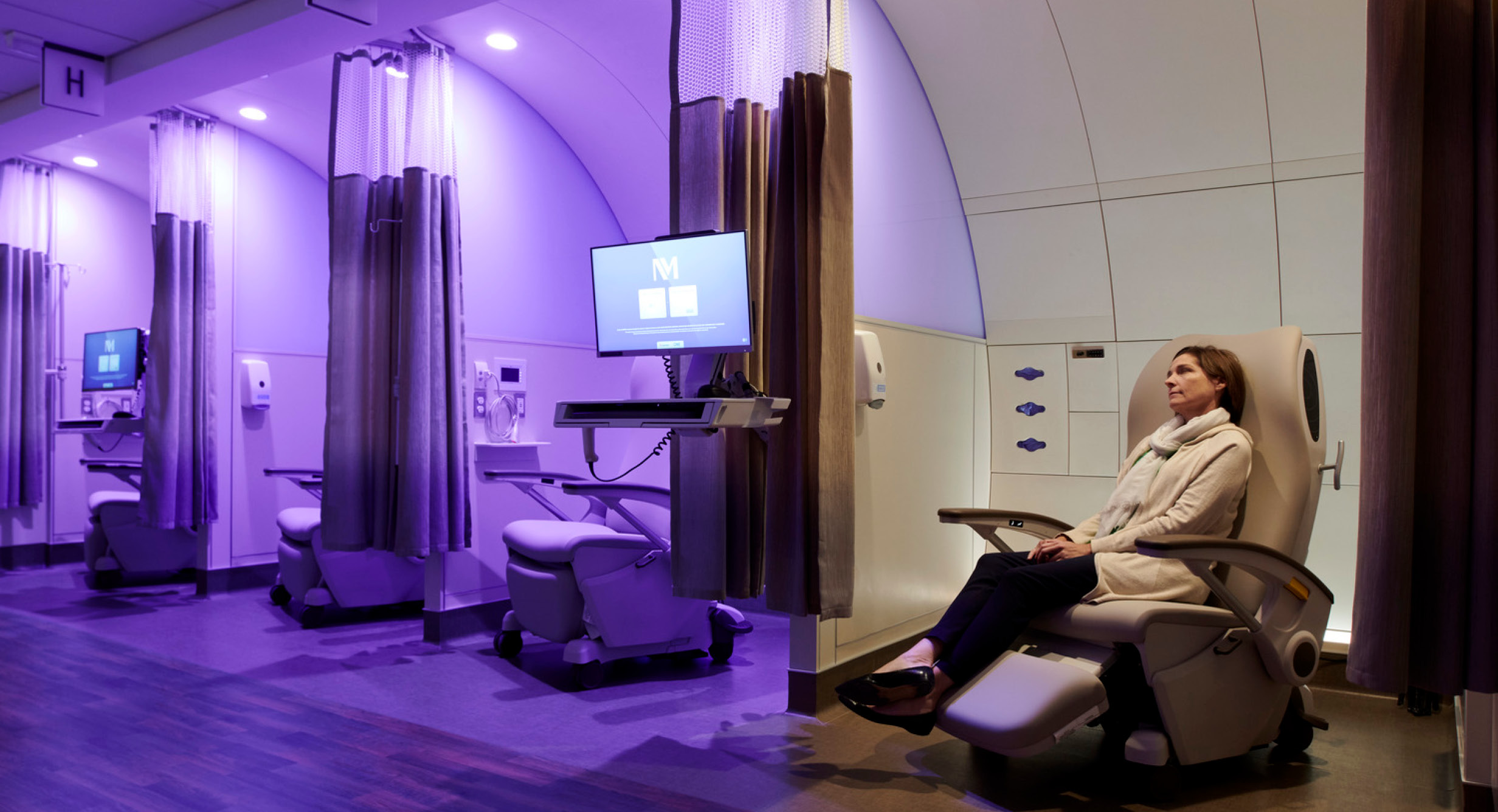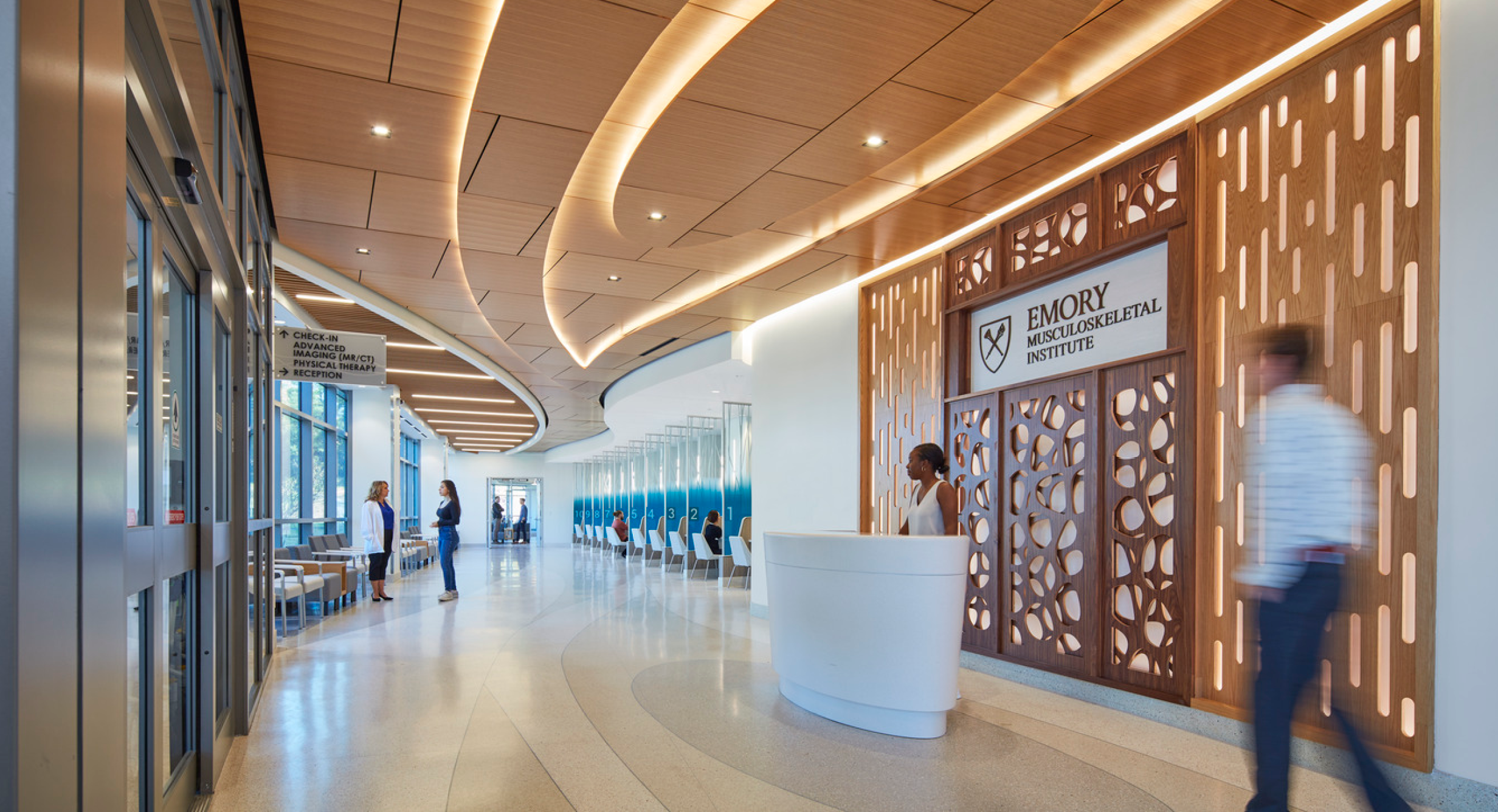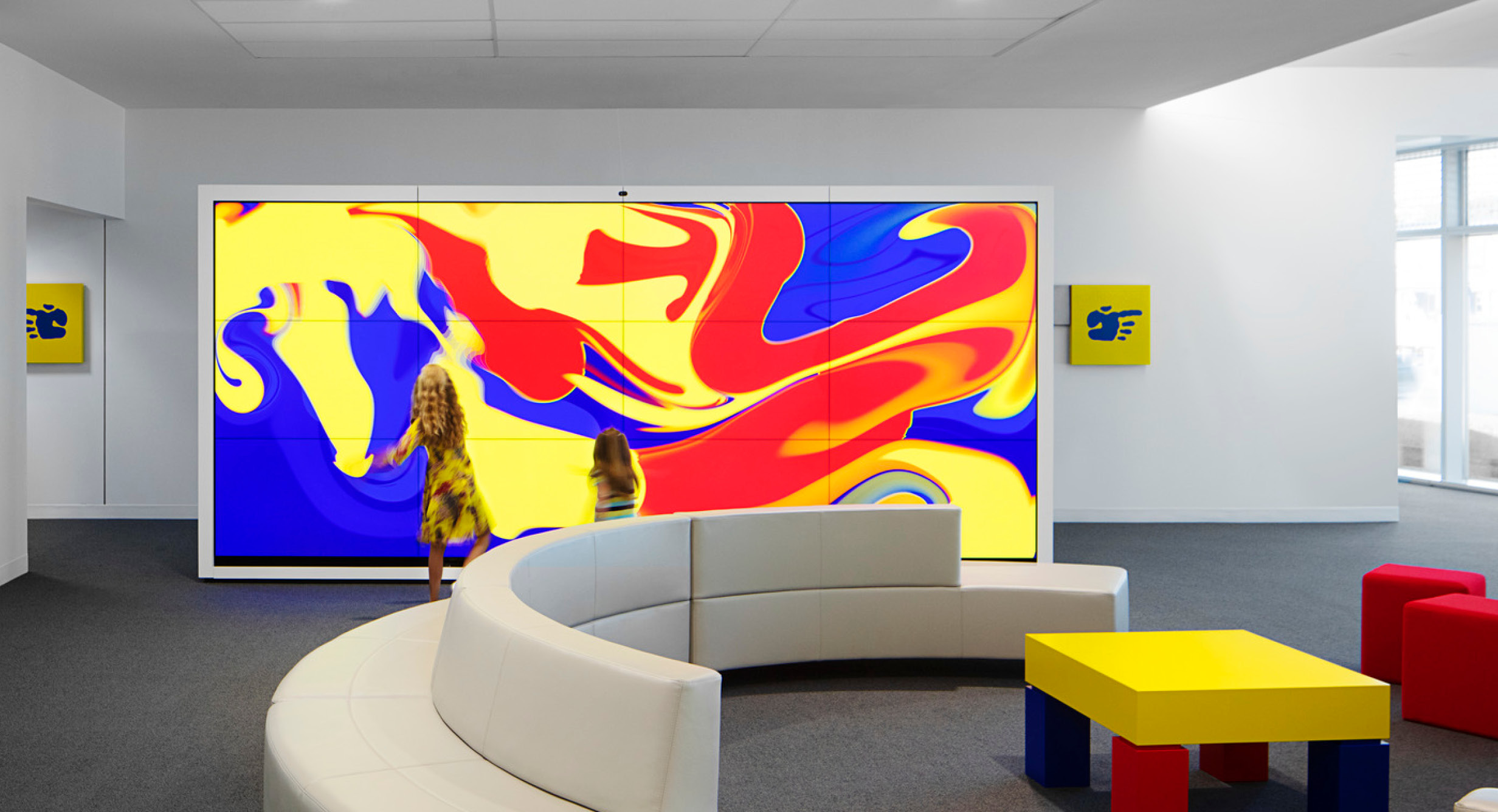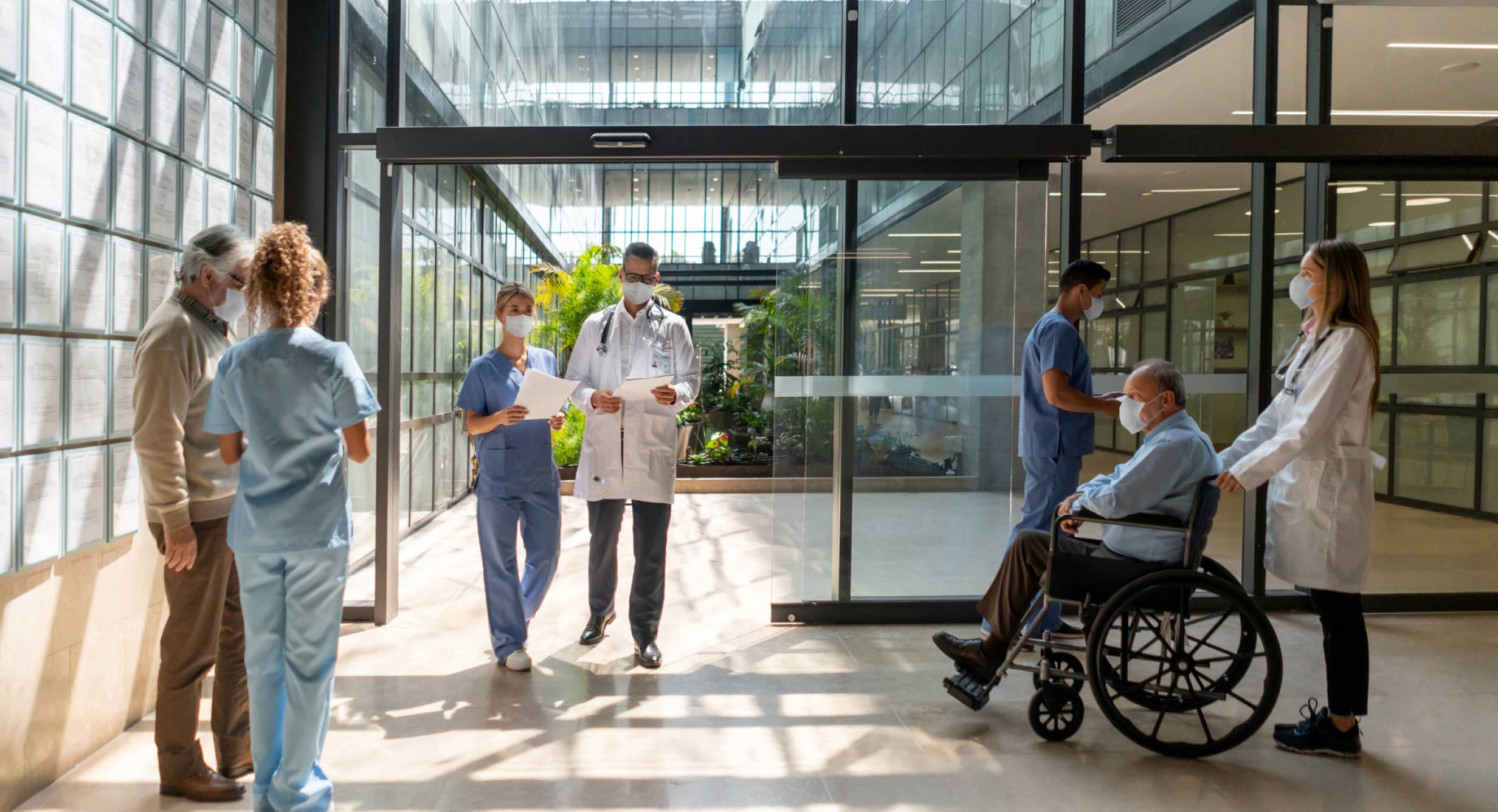
Designing Health Facilities for a Resilient Future: A Q+A with HKS’ Angela Lee
New technology, emerging medicine and shifts in public health all impact health care environments. Hospitals and clinic design must change with the times.
HKS has been committed to transformation in the design and health care industries for more than 80 years. Whether we’re building a new world-class hospital in a major city, renovating a small local clinic or anything in between, HKS designers and researchers innovate to provide cutting-edge spaces that support the well-being of patients, caregivers, and health professionals.
We talked with HKS’ Angela Lee, Partner and Managing Director of the Asia Pacific region who has led health care projects in many countries. She shared her thoughts about what she has learned throughout her career and what she sees for the future of health facilities.
After three decades of designing and planning health facilities, what do you consider to be the necessary elements for efficient health care design?
Efficient health care design begins with a thorough understanding of the evolving landscape of the industry. We need to anticipate the ongoing shifts in care delivery, address financial pressures, and prioritize patient needs. Flexibility is always key. We must create places that can adapt to advancements in health care technology and the future needs of health systems, patients, staff and caregivers.
What are some ways the COVID-19 pandemic impacted the health care industry? What trends has it accelerated?
The pandemic has acted as a catalyst, accelerating existing trends within the health care industry and increasing demand for more efficient, patient-centered care. It has heightened financial pressures, squeezed provider margins, and forced a shift to new points of care due to emerging competitors. Additionally, workforce burnout and shortages have brought staff well-being into focus, and shifting demographics have highlighted the increased need for senior care. Moreover, the mental health crisis stemming from the pandemic has become a pressing issue that needs to be addressed.
Recently, we’ve been able to get ahead of some of these pressures and address them in real time. As just one example, HKS is leveraging our design for emergency department pods, first deployed at Northwestern Memorial Hospital in Chicago. With these private, secure pods, patients enjoy more comfort than they would in traditional emergency departments and hospital staff can deliver more efficient care even on their busiest days.
What ongoing impacts have you observed health care systems facing that may harder to see — things that are ‘beneath the surface’ but are causing ripple effects in the industry?
Financial pressures continue to squeeze provider margins, requiring health care facilities to find innovative solutions to deliver quality care cost-effectively. There has been a shift in care delivery. New points of care, such as telemedicine and retail clinics are challenging traditional health care settings. Additionally, workforce burnout and shortages persist, necessitating a focus on the well-being of health care professionals and exploring new staffing models.
How do you believe health care design can address the mental health crisis stemming from the pandemic?
Health care design can play a significant role in addressing mental health crises. We need to create spaces that promote healing, calmness and connection. Incorporating biophilic and natural elements, providing privacy, and designing areas for relaxation and reflection are crucial. Integrating mental health services into health care facilities and considering community-based care models can also help support individuals in need.
HKS is doing significant research and design work to understand how we can best support mental and behavioral health within the built environment. We’ve explored ways to improve care in emergency departments, as people in mental health crisis are often taken to emergency settings. We’re also increasingly adapting and creating health facilities to provide comprehensive mental and behavioral health services, as is the case with Mount Sinai Beth Israel Comprehensive Behavioral Health Center in New York City.
How is health care technology shaping the industry? What new frontiers are you exploring?
Rapid innovation and the adoption of digital health and new technology have become essential in health care. Telemedicine, artificial intelligence, and remote patient monitoring are just a few examples of how technology is transforming care delivery. We are also exploring the potential of virtual reality, wearable devices, and robotics to further enhance patient outcomes and improve efficiency in health care delivery.
Our clients are working right alongside us to advance the intersections of technology and health care in rapidly growing cities and regions. As just one example, HKS designed and delivered the Songdo Severance Hospital in South Korea with advanced operational technology befitting Songdo’s moniker as ‘the smartest city in the world.’
As an architect, how do you balance the need for flexibility in health care design with the importance of pandemic readiness?
Flexibility and pandemic readiness go hand in hand. By designing health care facilities with adaptability in mind, we can ensure that they can respond to unforeseen challenges, such as pandemics, natural disasters, civil defense, without compromising patient care. This includes designing spaces that can be easily reconfigured, incorporating infection control measures, and implementing robust technology infrastructure to support telehealth and remote care.
For several years, HKS has been leveraging our FleXX research efforts with the Center for Advanced Design Research and Evaluation (CADRE). The FleXX framework outlines key attributes of a versatility, modifiability, convertibility and scalability and can be used to design health care projects of various types, including outpatient settings and hospitals experiencing pandemic surges. Since the onset of the COVID-19 pandemic, we’ve also conducted extensive research into how to improve hospital resilience in the face of pandemics, applying our findings to health projects globally.
What drives your passion for designing health facilities that can address the challenges of today and anticipate the needs of the future?
The opportunity to make a positive impact on people’s lives is what drives my passion for health care design. By creating facilities that are patient-centric, efficient and responsive to industry trends, we can contribute to better outcomes for patients, health care providers, and communities as a whole. It is fulfilling to design spaces that support healing, promote well-being, and enable the delivery of high-quality care.
At HKS, I am fortunate to have the opportunity to work among people who share these values and work hard to improve the lives of people who encounter the places we design. Through our Health practice and our Citizen HKS initiative, we strive to provide places that enhance the well-being of communities around the world.
